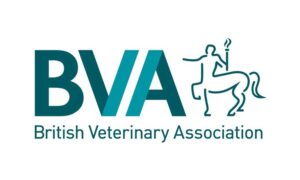A complete and balanced diet is as critically important for pets as it is for humans. When it comes to alternatives to traditional, meat-based diets, insect protein dog food and treats are increasing in popularity. They’re a source of nutrition that’s good for dogs and good for the planet. So, what’s the buzz?
From recycling to carpooling to cutting out dairy, many of us are increasingly looking for ways to reduce our carbon footprint. With awareness of the environmental impact of meat production growing in recent years, many of us are realising the good that can be brought about by not only changes to own diets but also that of our pets.
There has been a staggering 71% rise in popularity of searches for sustainable goods over the past five years. And, as environmental sustainability continues to sit high on our agenda, many of us are now also recruiting our pets in the fight against climate change.
Why insects are good for the planet
Feeding pets insect-based products is now fast becoming the latest trend. Experts say insects have clear potential in pet nutrition as they are rich in protein, and that farmed species can also contain high fats/oils, mineral and vitamin levels.
Another important factor are the environmental advantages. Early research suggests that insect farming contributes less carbons emissions, and uses less water and land compared to farming livestock. Crickets, for example, produce up to 80% less methane than cows and 8-12 times less ammonia than pigs, according to the same study.
Currently, a quarter of the impact of meat production – including the release of harmful greenhouse gases – comes from the pet-food industry. Alternative sources of protein such as insects can contribute hugely to reducing these impacts, for the better good of the planet.
Plus, dogs are less squeamish about eating bugs…
Are insects better for pets?
 According to The British Veterinary Association (BVA), yes.
According to The British Veterinary Association (BVA), yes.
When made into a nutritionally complete pet food, insect proteins can contribute to both nutritious and palatable products for pets, on top of being environmentally friendly. There are specific species of insects that are authorised for use within pet food. This includes crickets, mealworms and black soldier flies. These insects are known for packing a lot of nutrition in a very small package.
One of the key reasons behind their excellent nutritional profile is that insects are 12 to 25 times more efficient at converting their food into protein than animals. One 2020 review found that most edible crickets have a higher protein content than more common animal-based protein sources such as chicken and pork. Whereas lot of the meat from animals is wasted, with insects we also eat the whole thing, meaning a lot less wastage.
Good things come in small packages. And for dogs – who need to get plenty of protein from food to keep a healthy, balanced diet – especially those that work (and play) particularly hard – insects can provide a fantastic source of nutrition that is less harmful than meat-based alternatives.
The rise of insect protein dog food
Many pet food brands — including the two biggest, Mars and Nestlé — are now launching insect-based alternatives for dogs and cats, and according to a Petco survey, over half of customers like the idea of using sustainable alternative protein ingredients in pet food.
Established in 2019, Yora introduced the first insect protein pet food sold in the U.K. It claims to be “the world’s most sustainable dog food”, which is made from insects with oats, potato, seaweed, insects.
Bug Bakes – as featured on BBC TV Show Dragon’s Den – was set up by Dundee Entrepreneur Ross Lamond after he discovered that insects have a much lower environmental impact than meat (using only 15 litres of water per kilo of protein – while containing comparable levels of protein). The brand markets eco-friendly dog food and treats made with sustainable insect protein, wonky fruit/veg and plastic free compostable packaging.
Europe-based start-up Entoma Petfood, which launched in early 2018, is another innovative company producing insect-based pet food for cats and dogs. The company utilises black soldier fly larvae as a sustainable protein in its pet food formulations, combined with fruits and vegetables.
So, what can pet food developers learn from the market?
Research shows that nearly half the British public are cutting back on meat or are already vegetarian, and we are also increasingly trickling down own lifestyle choices to our four-legged friends.
The insect-based pet food market is expected to increase 50-fold by 2030. With meat-free diets growing in popularity, producers of pet food are now offering a wider, more divers and innovative range of products for cats and dogs. From hybrids of traditional meat, insect protein and plant-based protein, to vegan alternatives, and plant-based treats.
When it comes to developing a winning formula, the growing appetite for protein alternatives is a clear market – in fact, the pet food industry is currently the largest market for insect proteins. With the industry booming, there is a growing need for producers to carve out their USPs – this means creating products that offer a good balance of nutritional and flavour needs, along with all the sustainability benefits.
